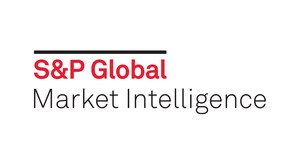
Beyond Yield: New S&P Global Market Intelligence Research Cracks the Code on REIT Valuation
Net Asset Value, Cash Flow, Net Operating Income, and Analyst Consensus Price Target More Effective than Dividend Yield in Evaluating REIT Performance
NEW YORK, Sept. 29, 2016 /PRNewswire/ -- S&P Global Market Intelligence, a leading provider of multi-asset class research data and insights, released a new research report today which upends the conventional wisdom on REIT (real estate investment trust) valuation.
The report, A League of Their Own – Batting for Returns in the REIT Industry, addresses the recent separation of REITs from the financial sector of the S&P 500 into their own sector by analyzing the best approach to evaluate REIT investments. Recognizing that REITs differ from traditional companies in several critical ways, the research notes that traditional means of asset valuation – such as dividend yield and book-to-price ratio – are less reliable indicators of REIT value than other, less-conventional valuation metrics.
Following were the report's key findings:
- Most Effective REIT Valuations Measure How "Cheap" a REIT is Relative to Trading Price: The most accurate metrics for assessing REIT value were Net Asset Value-to-Price (NAVP); Adjusted Funds From Operations (AFFO), which is a proxy for REIT cash flow; and Implied Capitalization Rate, which captures Net Operating Income Yield.
- Dividend Yield is a Poor Indicator for REIT Selection: Contrary to conventional wisdom, dividend yield is the worst-performing valuation indicator tested in the analysis.
- Analyst Consensus Price Target is a Key Indicator: Analyst Upside, which is the analysts' consensus price target divided by the current REIT price, and 3-month change in consensus price target is one of the most effective metrics used to value a REIT.
- NAVP and Analyst Upside are Best Valuation Metrics in Rising Rate Environment: While rising interest rates can negatively impact high dividend yield REITs, those with the best NAVP and Analyst Upside measures tend to perform better in a rising rate environment.
"REITs behave differently than other asset classes, which is what makes them so attractive, but also so confusing to investors," said the study's lead researcher, Temi Oyeniyi, of the S&P Global Market Intelligence Quantamental Research team. "Now that REITs are officially standing alone in their own industry group within the S&P 500, our research helps to establish an appropriately tailored approach to evaluating within a portfolio."
The new research report, A League of Their Own – Batting for Returns in the REIT Industry, was produced as part of the S&P Global Market Intelligence Quantamental Research team's ongoing Industry Specific Alpha Series. To access the full research note, please click here.
About S&P Global Market Intelligence
At S&P Global Market Intelligence, we know that accurate, deep, and insightful data is vital. We integrate financial and industry data, research and news into tools that help track performance, generate alpha, identify investment ideas, understand competitive and industry dynamics, perform valuation and assess credit risk. Investment professionals, government agencies, corporations and universities globally can gain the intelligence essential to making business and financial decisions with conviction.
S&P Global Market Intelligence is a division of S&P Global (NYSE: SPGI), which provides essential intelligence for individuals, companies and governments to make decisions with confidence. For more information, visit www.spglobal.com/marketintelligence.
SOURCE S&P Global Market Intelligence






Share this article